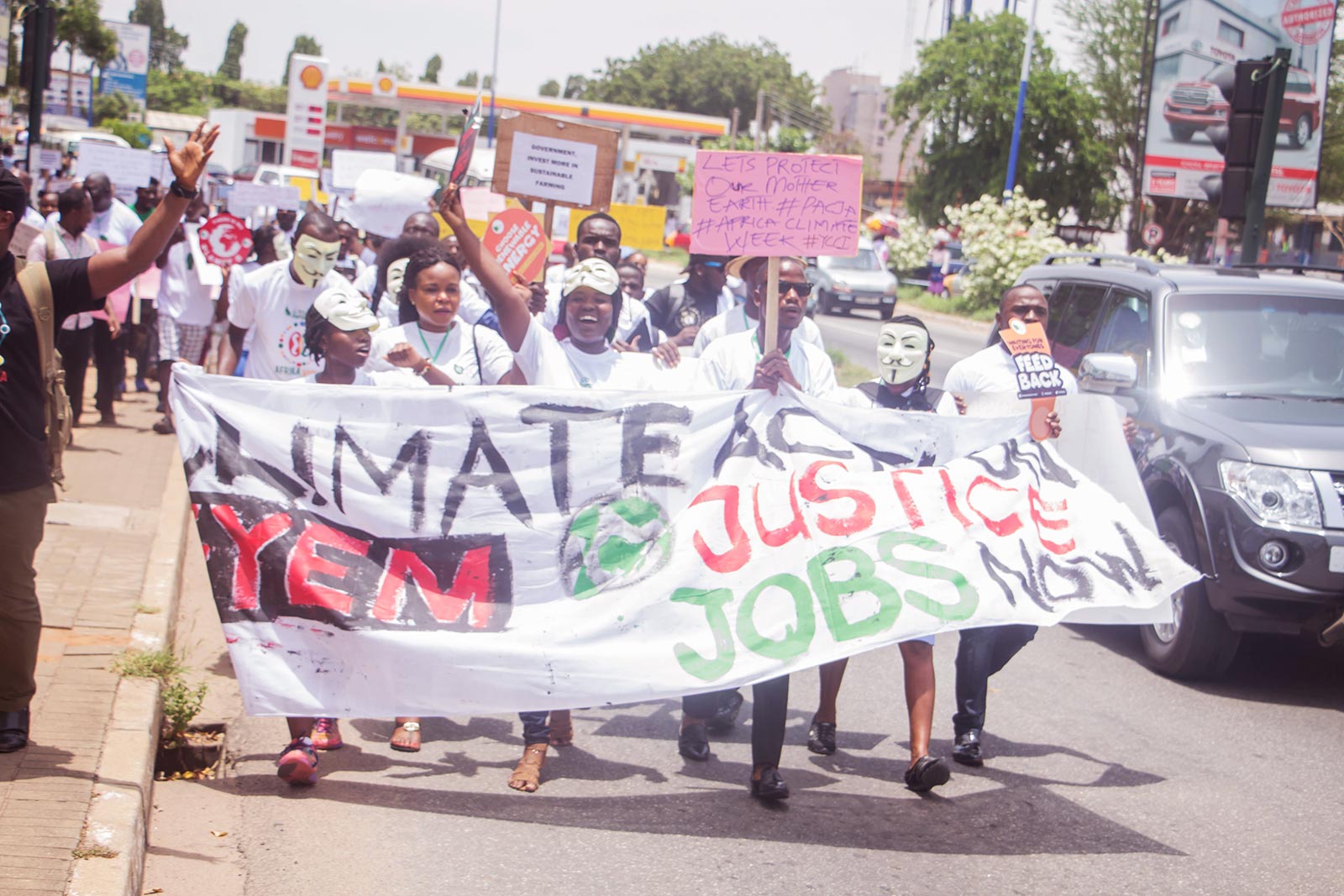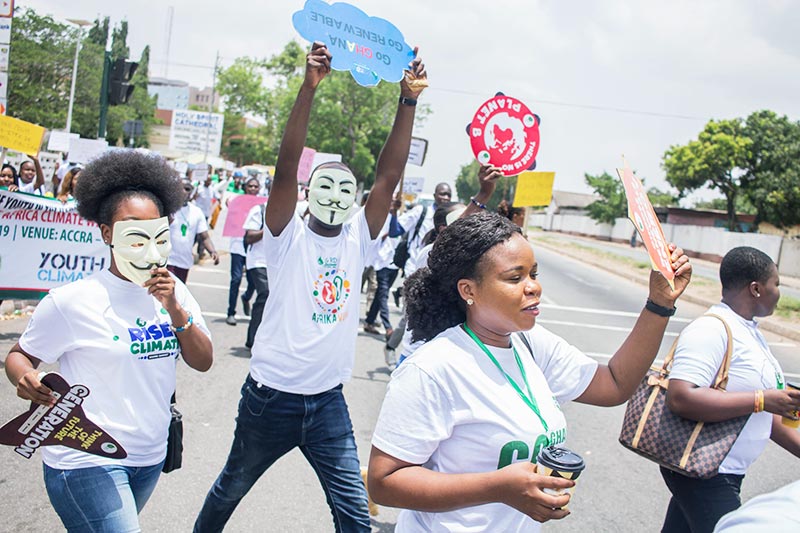Ghana’s fight against coal inspired the rest of Africa
Ezekiel Chibeze, 350 Ghana Reduce Our Carbon (GROC) co-founder and leader of Strategic Youth Network for Development is among the six grassroots environmental activists that were announced on Monday as winners of the 2020 Goldman Environmental Prize for leading a vibrant grassroots campaign aimed at cancelling the construction of the first coal-fired power plant in Ghana and to accelerate the country energy transition to renewables.
This prestigious award comes as a recognition of tireless efforts and intense campaigning work that Chibeze and his colleagues have made since we first met in 2013. Back then, the team of seven young environmental activists were trained at Global Power Shift Summit by 350.org along with 500 young activists from all over in creative and ambitious climate campaigning.
Back home, 350 GROC along with other civil society groups embarked on a struggle against the proposed 700 MW coal plant in the region of Ekumfi, warning about the dangers of coal plants, stressing its very serious health and environmental impacts and exposing the lies and contradictions spread by the proponents. The project was then proposed as a response to the power outages that had become so frequent, paralyzing businesses and affecting people's well-being across Ghana.
Between 2014 and 2015, 350 GROC and allies went on the ground mobilising and raising awareness of youths in schools, students, community and religious leaders on the dangerous impacts of coal on human life, natural habitats and ecosystems at large. The campaigners led by Chibeze also sent many letters to banks and government institutions. The lack of response from those institutions was already an eloquent sign that the arguments put forward by civil society groups were extremely solid, unbeatable.
In October 2015, I visited GROC for a strategy workshop aimed at reviewing and consolidating the anti-coal struggle. During the discussion, Farid Shamsu Deen, one of the GROC members asked “Why should we accept Shenzhen Energy Group, a company that has been chased out in its own country (China) to flourish in Ghana while impacting negatively on our communities, our health, our water and air?” That comment showed the team’s resolution to spare no effort until this coal dream is abandoned.
In late 2016, Ghana's environment minister said the coal plant would not move forward, and a few months later, the new president announced that all new power projects would be renewable energy-based.
The cancellation of what would have been Ghana's first coal-fired power plant has sparked a wave of anti-coal struggles across the continent - from Senegal to Kenya, from Zimbabwe, to Cote d'Ivoire and South Africa where activists are fighting alongside the affected communities to stop the construction of new plants and the phasing out of existing ones.
The Ghanaian campaigning model is an excellent combination of ‘classic’ tactics of mobilising and engaging grassroots communities with ‘modern’ ones related to lobbying, advocacy and communication through social media platforms. It confirmed once again the immense power of united forces and voices and the effectiveness of grassroots advocacy to achieve systemic change.
Ezekiel’s recognition with the Goldman Environmental Prize 2020 shows that collective efforts through community organizing and campaigning can empower ordinary people to demand their rights and overcome social injustices and achieve inspiring wins for thousands of grassroots activists, frontline communities, and local groups of Africa and beyond working for real climate justice. If a group of seven volunteers compelled their government to cancel what would have been the country's first coal-fired power plant, what couldn’t we achieve as national coalitions, regional and global movements working hand-in-hand for a fossil-free planet?
“Stop Procrastinating and lip-service, Take Immediate Action” Activists in Ghana tell African Leaders
On the 21st of March, 350 Ghana Reducing Our Carbon took to the streets together with Ghana Youth Environmental Movement, Green Africa Youth Movement and other climate justice organisations like PACJA, Peasant Farmers Association of Ghana, Friends of the Earth Nigeria to demand real climate action.

The action was amongst a series of activities by the 350 GROC team in response to the proceedings of the Africa Climate Week hosted by the government of Ghana from 18 - 22 March. The summit’s aim was to enhance engagement between State and non‐State actors in the key sectors of energy, agriculture and human settlements.

The activists in Accra clearly expressed their opposition to fossil fuels and carbon markets, saying that such false solutions have no place in the new dawn of Ghana, and Africa if we have to combat climate change and achieve the goals of sustainable development.
Before that action, a press conference was held where 350 GROC and its partners asked their government to stop the lip-service and accelerate the energy transition towards 100% renewables.
Although there were no solid commitments from the Africa Climate Week, 350 GROC committed to continuing to push the Ghanaian government to be ambitious and not delay the transition for a 100% renewable energy future.
- Rukiya Khamis

